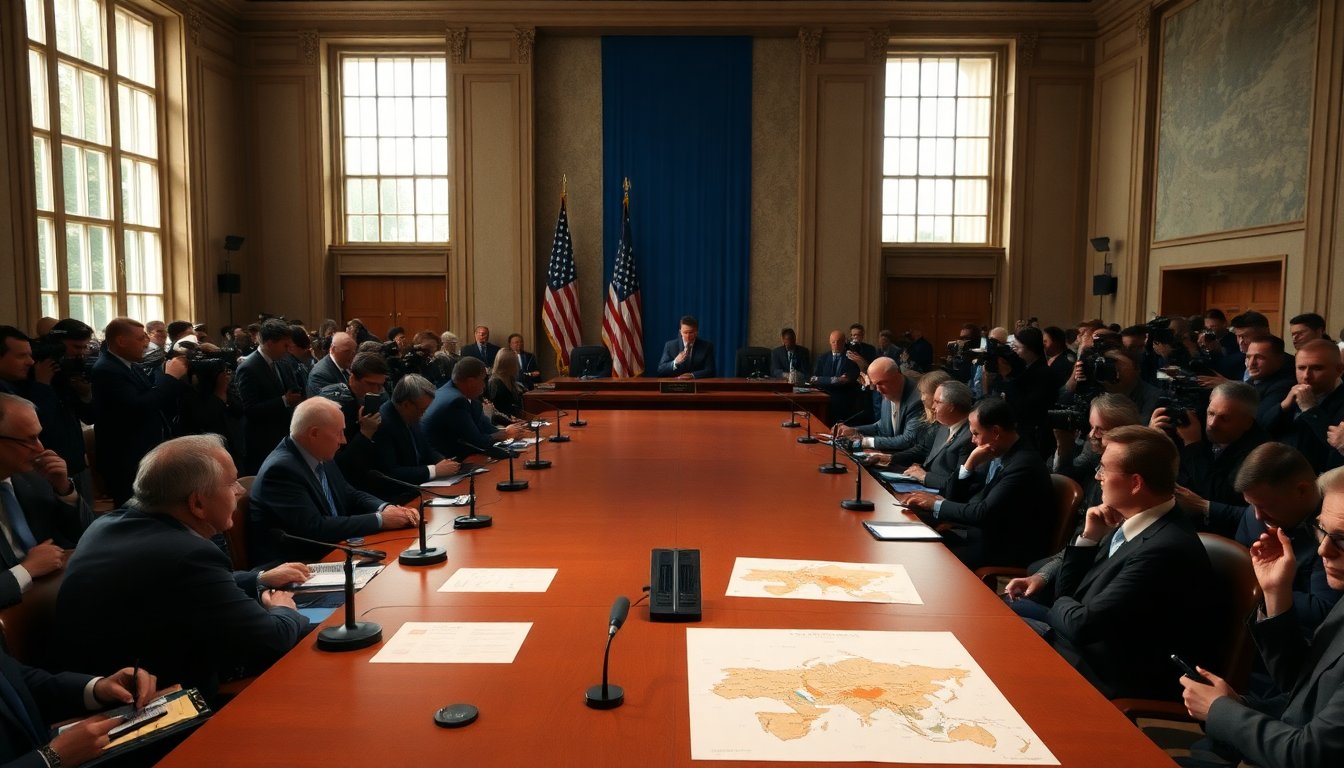Table of Contents
In a significant development in global politics, President Donald Trump appears to be reassessing his position on the Russia-Ukraine conflict. For months, Trump had argued that Russia held an advantageous position over Ukraine, suggesting that any resolution would require substantial territorial concessions from Ukraine. Recent statements, however, reflect a notable shift in his viewpoint.
During a press conference after his speech at the United Nations General Assembly, Trump expressed optimism regarding Ukraine’s prospects of reclaiming its lost territories. This change in rhetoric may surprise many, particularly Russian President Vladimir Putin, who has been viewed as a strategic leader in this complex geopolitical landscape.
Trump’s Evolving Rhetoric on Ukraine
Trump’s recent remarks indicate a potential departure from his previous stance, which many interpreted as supportive of Putin. He has begun to articulate support for Ukraine, suggesting that it has the capability to regain all of its lost territory. Nevertheless, this new rhetoric requires cautious interpretation, as Trump’s media engagements often lead to contradictory statements shortly thereafter.
A Shift in NATO Dynamics
Of particular interest is Trump’s apparent warming to the NATO alliance, an organization he had previously criticized. His comments arise amid escalating military provocations from Russia, characterized by frequent incursions of Putin’s warplanes and drones into NATO airspace. When asked if NATO members should respond to these incursions, Trump affirmed, stating, “Yes, I do.” This response suggests a deeper commitment to NATO’s collective defense principles.
Additionally, Trump’s commendation of Ukrainian forces during his press conference was noteworthy. He recognized their courage and resilience against overwhelming odds, stating, “They are good fighters… they have a lot of courage, a lot of guts.” This marks a significant shift from his earlier narrative, which suggested that Ukraine bore responsibility for initiating the conflict.
Implications of Trump’s Statements
The ramifications of Trump’s new stance are substantial. By advocating for NATO’s active engagement in defending its airspace against Russian aggression, Trump may be laying the groundwork for a more assertive military posture from the alliance. His comments imply a tacit endorsement for NATO countries to take action against Russian aircraft that violate their airspace, which could heighten tensions dramatically.
Strategic Recalibration
Trump’s shift is not merely rhetorical; it signals a potential recalibration of his strategy in response to the evolving situation. Historically, a noticeable increase in Russian military operations against Ukraine has followed his conversations with Putin, leading some to speculate that Trump’s assertive comments aim to regain leverage in this diplomatic contest.
It is essential to recognize that Trump’s leadership style, characterized by a network of loyal supporters, allows him to exert considerable influence over U.S. foreign policy. His alignment with MAGA supporters provides him with a robust domestic base, reinforcing his stance on international issues.
A Crucial Turning Point?
As the situation unfolds, a key question remains: will Trump maintain this newfound assertiveness or revert to a more conciliatory approach towards Russia? If he follows through on his statements regarding NATO’s right to defend its airspace, it could mark a pivotal moment in the ongoing conflict. Should NATO act on his comments, the consequences could either deter further Russian aggression or escalate the conflict into a broader war.
In conclusion, Trump’s recent statements regarding Ukraine and NATO reflect a significant shift in the geopolitical landscape. By acknowledging Ukraine’s potential for victory and endorsing a more robust NATO response, Trump may be altering the dynamics of this protracted conflict. As both leaders, Trump and Putin, navigate these turbulent waters, the international community remains vigilant, observing how this intricate game of political chess evolves.


